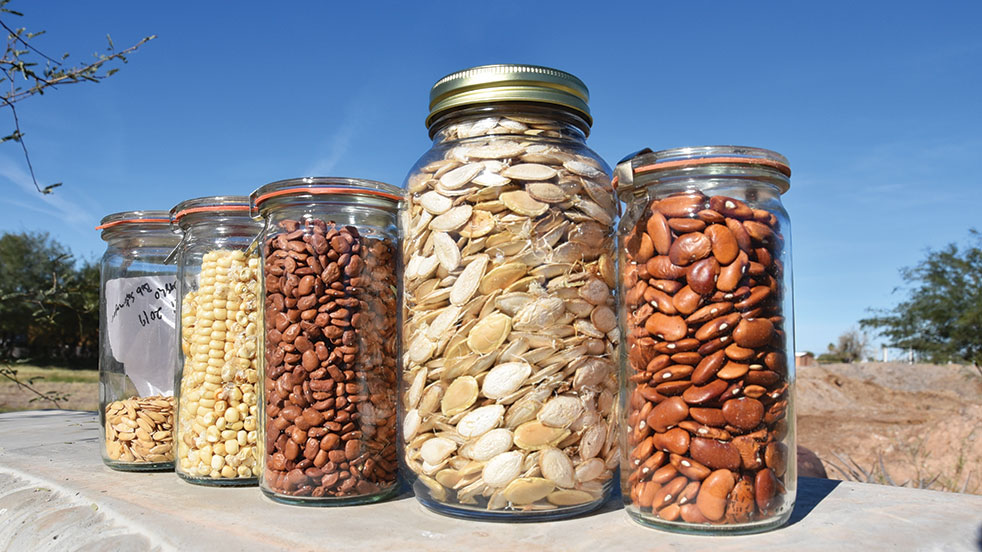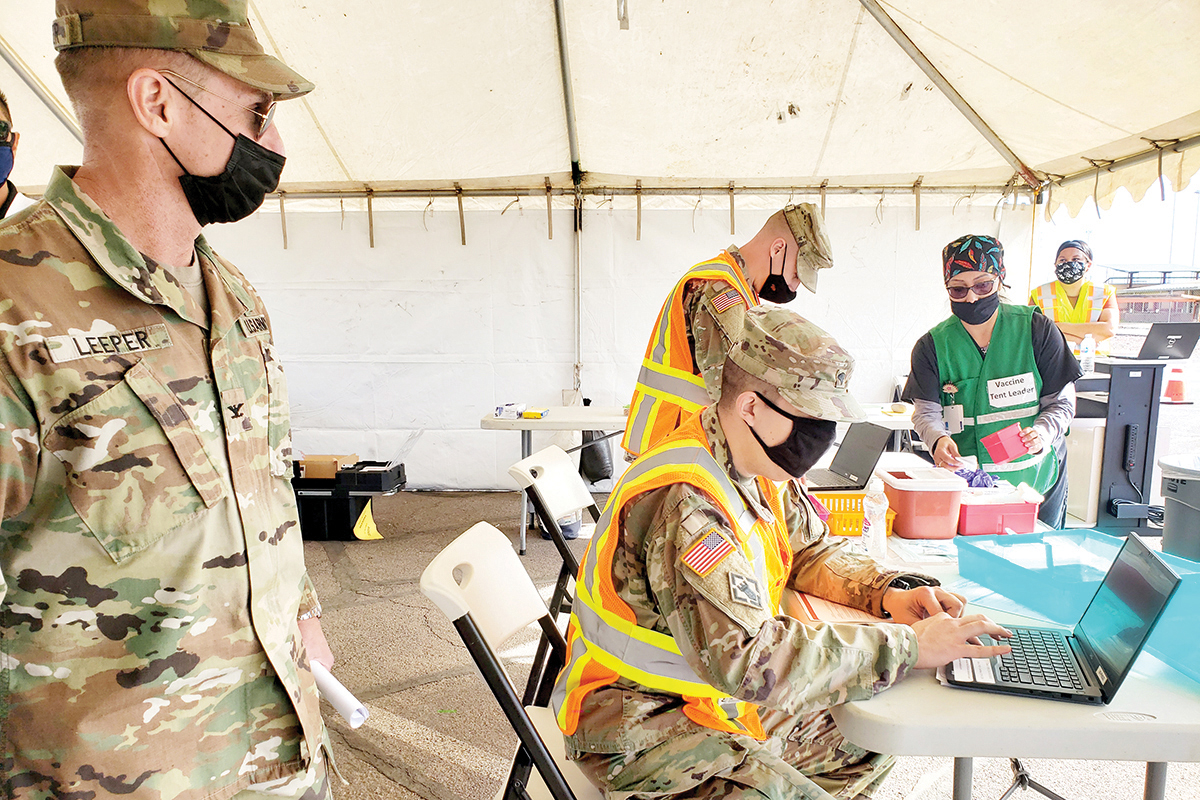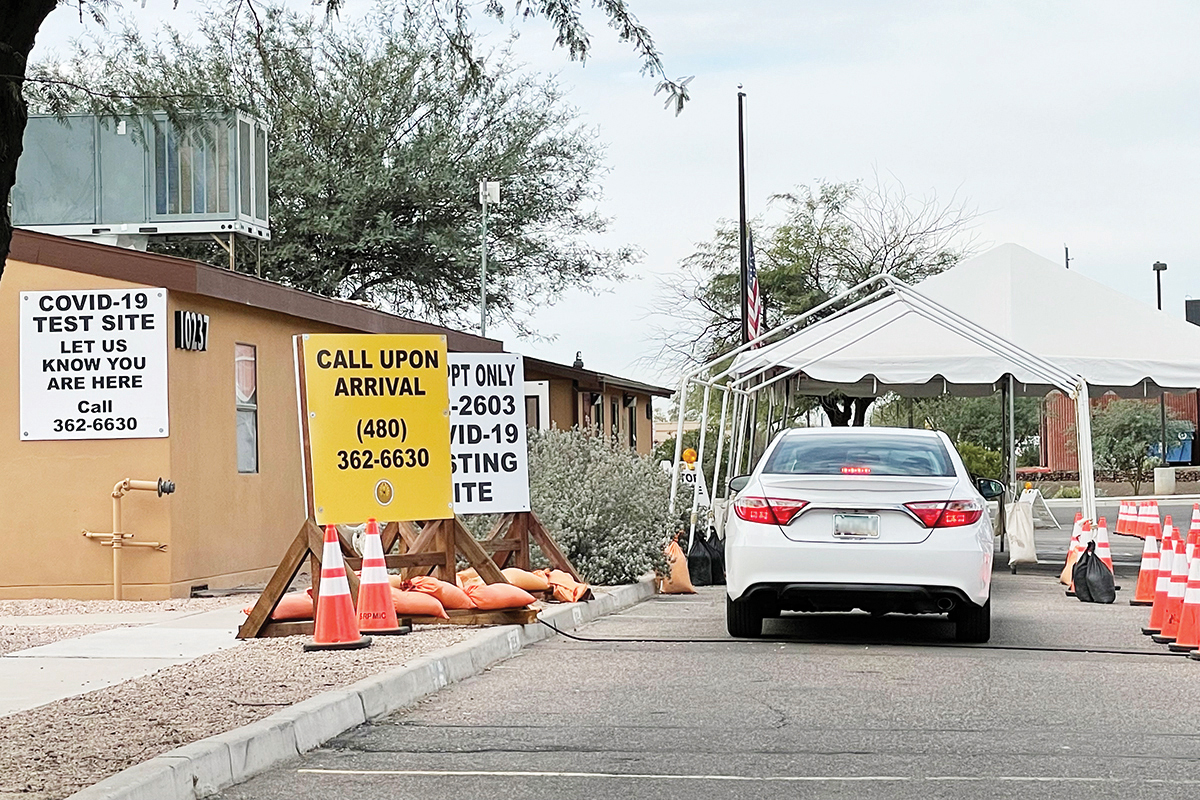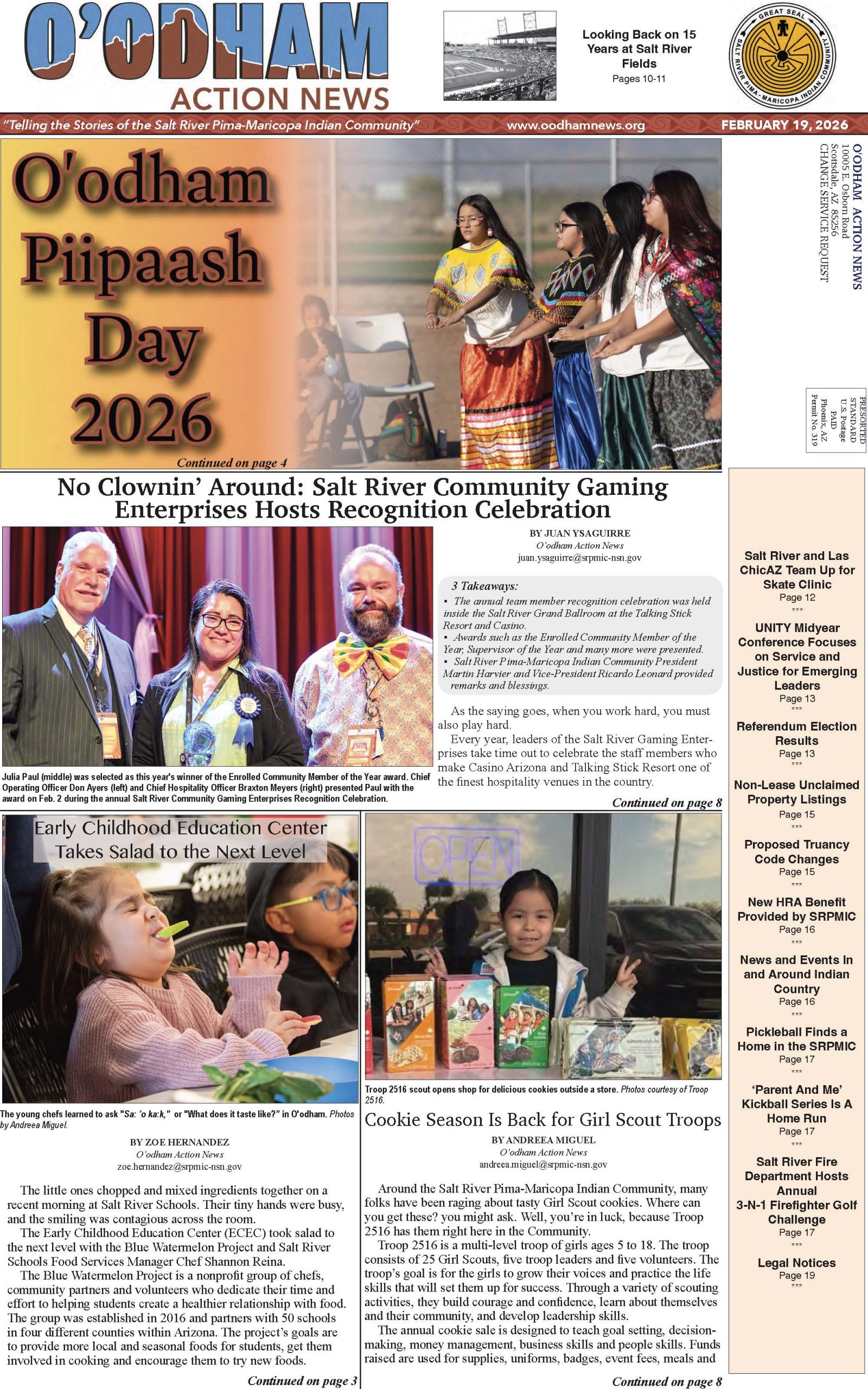VIEWS: 3408
March 2, 2022Spring Garden Planting and Updates From the Community Garden
As temperatures begin to show signs of warming up, gardeners are preparing for planting seeds this spring.
According to Native Seeds/SEARCH, planting for early spring in the low desert of the Salt River Pima-Maricopa Indian Community is usually from mid-January through late February, when seeds such as arugula, chickpeas, cilantro, lentils, onions and peas can be planted.
As the official spring planting season of early March through late April approaches, now is the time to begin transitioning to planting seeds such as beans, corn, squash, cowpeas, gourds, cucumber, amaranth and melons. These plants will be ready to harvest between May and August.
The Native Seeds/SEARCH Conservation Center and its partners produced fresh seed in 2021 for many varieties that have been out of circulation for years, and these can be planted in the spring when the soil warms, or at the start of the monsoon season in the low desert.
These seeds are available at www.nativeseeds.org and include the O’odham Ke:li Ba:so, Walter Brandis pinto bean, Atlixco quelite, Mexicali tomatillo and the Hawol lima bean, an orange bean that came from the Akimel O’odham at the Gila River Indian Community.
Community Garden Updates
According to Salt River Community Garden Coordinator Jacob Butler, former garden technician Mike Juan has taken a position at the Salt River Fire Department and is going through the training academy.
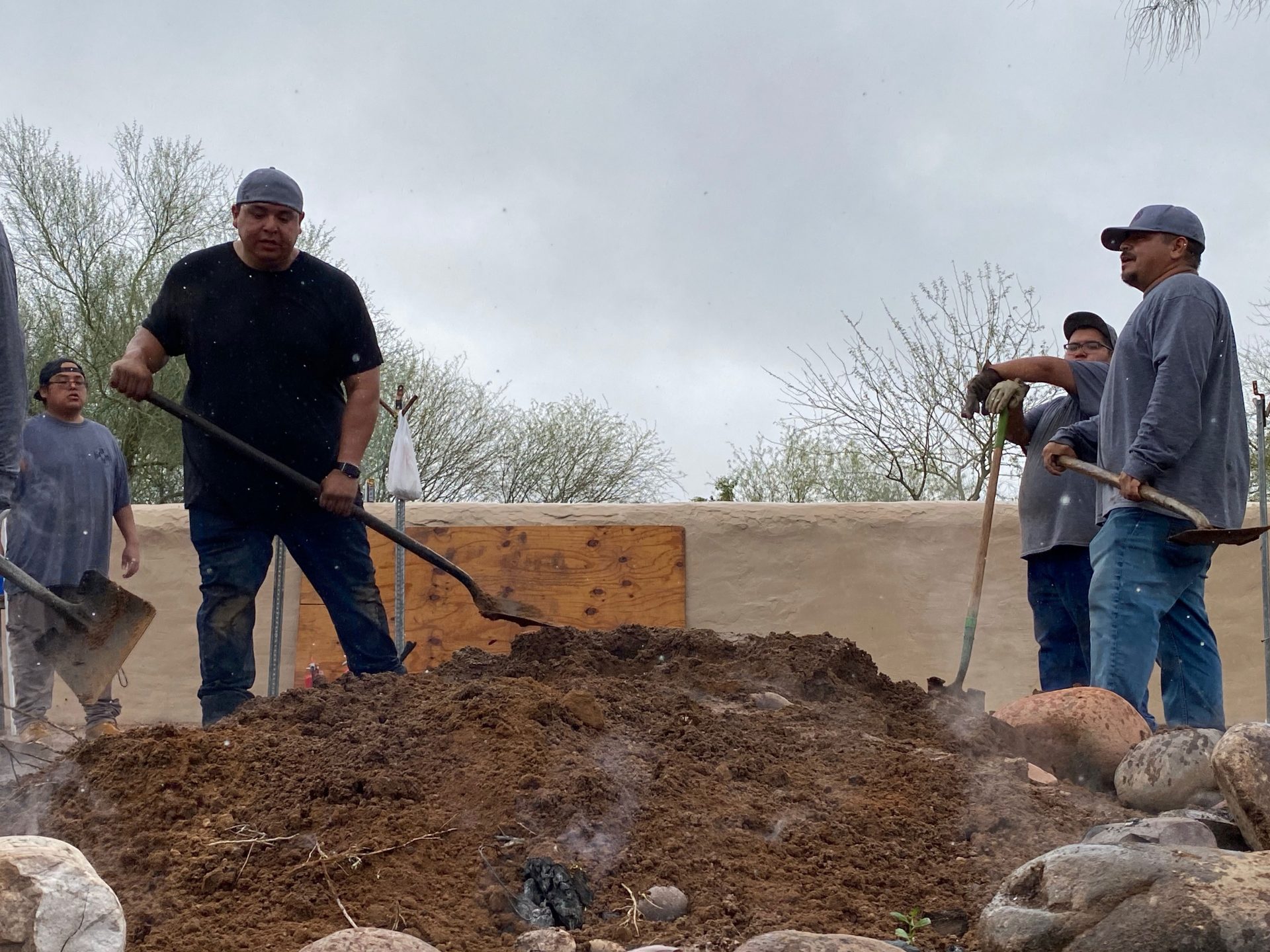
Community Garden. Photo provided by Jacob Butler
“We wish him the best of luck in his new endeavor and hope it all works out. We’re sad to see him go, but we’re happy that he is following his dream,” said Butler.
Butler said that the garden will feel that loss, as there is only one garden technician for now. They may be hiring another one soon, and Butler said to keep an eye out for the job posting.
Due to COVID-19 restrictions, the Community Garden is holding off on providing home gardens this year.
“With the state of everything right now, we’re not going to be able to do the home gardens, but what we can do is offer seeds,” said Butler.
The Cultural Resources Department is putting out a call for Community members to sign up for seed packages. The seeds will be distributed on a first-come, first-serve basis, and the Community Garden will try to get as many seeds out as possible so Community members can incorporate them into their home gardens.
Some of the seeds come from the Community Garden seed bank and include staples like tepary beans, squash and lima beans.
The pandemic has had a big impact on the Community Garden, because when the staff was finally able to come back to the garden, much of the work was focused on cleaning up the garden for future planting and pruning the trees, shrubs and perennial plants.
“The entire garden pretty much sat fallow for a year, so there was a lot of work that had to be done,” said Butler.
“But even in the good times, the garden can’t sustain grow-outs of too many crops at one time because of cross-pollination. Because these are traditional plants or heirloom crops, we want to make sure that what we’re planting in the ground is the same thing we’re harvesting. So, we have the seeds on cycles; if we grow something this year, more than likely next year we’re going to grow something else.”
This is especially the case with squash and corn, which are susceptible to cross-pollination and hybridization.
However, Butler said that beans are easier to grow because they have a perfect flower.
“So you can grow a few different beans in a garden at the same time with relatively low risk of mixing,” he said.
“We try to be selective in what we grow together so we can ensure seed purity and the same genetic information will be passed on to the next generation of seeds. Most of the seeds, aside from chiles or squash, have a seed viability rate of five years or longer. So we’re well within that mark to make sure we’re not letting our seeds die in our seed bank.”
Butler would like to remind Community members that he is always available throughout the growing seasons to help Community members navigate their gardening experiences. Because the beginning of March is the optimal spring planting season, Butler said to reach out to him soon via email at Jacob.Butler@SRPMIC-nsn.gov or call the Cultural Resources Department front desk to leave a message for assistance at (480) 362-7346.

